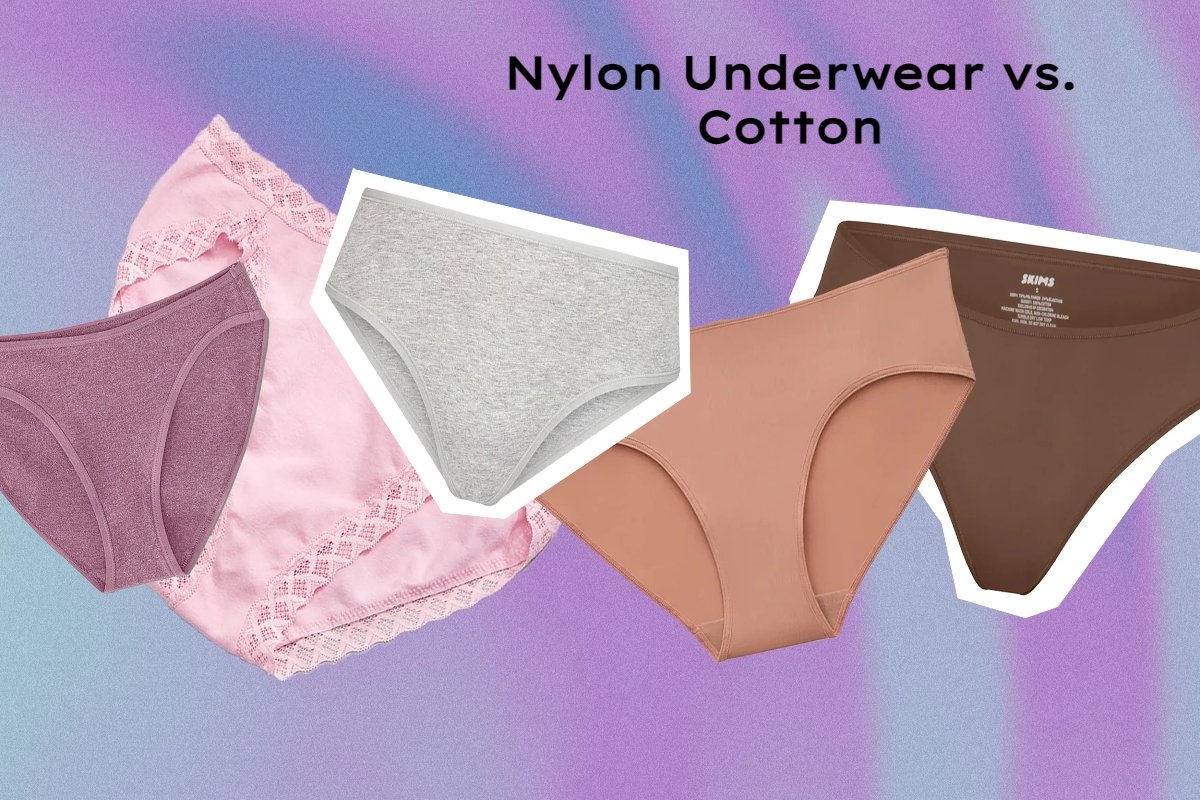Choosing the right underwear can significantly impact your comfort and overall well-being. When it comes to selecting between nylon and cotton underwear, the decision can be particularly challenging given the distinct properties of each material. In this article, we will delve into the key differences between nylon and cotton underwear, examining factors such as comfort, breathability, durability, and care requirements. We aim to provide you with all the necessary information to make an informed choice that best suits your lifestyle and preferences.
Introduction
Underwear is a fundamental part of our daily attire, influencing both comfort and hygiene. The materials used in underwear play a crucial role in these aspects. Nylon and cotton are two popular choices, each offering unique benefits and drawbacks. Understanding these differences can help you choose the best option for your needs.
What is Nylon?
Nylon is a synthetic polymer known for its exceptional strength, elasticity, and resistance to abrasion. Invented in the 1930s, nylon quickly gained popularity in the textile industry due to its durability and versatility. Nylon underwear is typically lightweight, smooth, and has a slight sheen, making it a favorite for those seeking a sleek and modern look.
Benefits of Nylon Underwear
- Durability: Nylon is renowned for its resilience. It withstands wear and tear better than many natural fibers, making it a long-lasting option.
- Elasticity: The elasticity of nylon ensures a snug fit, which can be beneficial for active wear.
- Moisture-Wicking: Nylon’s moisture-wicking properties help keep you dry by drawing sweat away from the skin.
- Quick-Drying: Nylon dries faster than cotton, which is advantageous for those who are active or live in humid climates.
- Lightweight: Nylon underwear is generally lighter, providing a barely-there feeling which many find comfortable.
Drawbacks of Nylon Underwear
- Breathability: Nylon is not as breathable as natural fibers like cotton, which can lead to discomfort in hot and humid conditions.
- Odor Retention: Nylon tends to retain odors more than cotton, necessitating more frequent washing.
- Sensitivity: Some people may experience skin irritation or allergies when wearing synthetic materials like nylon.
What is Cotton?
Cotton is a natural fiber harvested from the cotton plant. It has been used in textile production for thousands of years due to its softness, breathability, and absorbency. Cotton underwear is typically comfortable and gentle on the skin, making it a staple in many wardrobes.
Benefits of Cotton Underwear
- Breathability: Cotton is highly breathable, allowing air to circulate and keeping the skin cool.
- Hypoallergenic: Cotton is less likely to cause allergic reactions or skin irritation, making it ideal for those with sensitive skin.
- Softness: Cotton is naturally soft and comfortable against the skin.
- Absorbency: Cotton can absorb a significant amount of moisture, which can be beneficial for everyday wear.
- Natural Fiber: Being a natural fiber, cotton is biodegradable and more environmentally friendly compared to synthetic materials.
Drawbacks of Cotton Underwear
- Durability: Cotton is not as durable as nylon and can wear out faster, especially with frequent washing.
- Shrinkage: Cotton is prone to shrinking when exposed to high temperatures, which can affect fit over time.
- Drying Time: Cotton takes longer to dry compared to synthetic fibers, which can be inconvenient.
- Weight: Cotton underwear can feel heavier, particularly when wet.
Comparison of Nylon and Cotton Underwear
Comfort
Comfort is subjective and depends on personal preference. Cotton underwear is often praised for its softness and breathability, making it a comfortable choice for daily wear. On the other hand, nylon underwear is lightweight and elastic, providing a snug fit that many find comfortable, especially during physical activities.
Breathability and Moisture Management
Breathability is a critical factor, especially for underwear. Cotton excels in this regard, allowing air to flow freely and keeping the skin cool. Nylon, while moisture-wicking and quick-drying, does not offer the same level of breathability, which can be a downside in hot and humid conditions.
Durability
Nylon’s strength and resistance to abrasion give it a clear advantage in terms of durability. It can withstand more wear and tear compared to cotton, which tends to wear out faster, especially with frequent washing.
Care and Maintenance
Nylon is low-maintenance, requiring less care compared to cotton. It is resistant to wrinkles and dries quickly. Cotton, while easy to wash, requires careful handling to avoid shrinkage and maintain its softness. It also takes longer to dry, which can be inconvenient.
Environmental Impact
Cotton is a natural, biodegradable fiber, making it more environmentally friendly than nylon, which is a synthetic polymer. However, conventional cotton farming can have significant environmental impacts due to the use of pesticides and water consumption. Organic cotton is a more sustainable alternative, though it can be more expensive.
Use Cases
Everyday Wear
For everyday wear, cotton underwear is often preferred due to its breathability and comfort. It is ideal for those who prioritize softness and are in environments where high temperatures are not a concern.
Active Wear
Nylon underwear is a popular choice for active wear. Its elasticity, moisture-wicking properties, and quick-drying nature make it suitable for physical activities and sports. It provides a snug fit that stays in place during movement, which is beneficial for workouts.
Travel
When traveling, nylon underwear can be advantageous due to its lightweight and quick-drying properties. It is easy to pack and can be washed and dried quickly, making it convenient for trips.
Sensitive Skin
For individuals with sensitive skin or allergies, cotton is usually the better choice. Its hypoallergenic nature and softness make it gentle on the skin, reducing the risk of irritation.
Conclusion
Choosing between nylon and cotton underwear ultimately comes down to personal preference and specific needs. Nylon offers durability, elasticity, and moisture-wicking properties, making it ideal for active wear and travel. Cotton, on the other hand, excels in breathability, comfort, and hypoallergenic properties, making it a great choice for everyday wear and for those with sensitive skin.
Both materials have their advantages and drawbacks, and the best choice depends on your lifestyle and priorities. By understanding the key differences between nylon and cotton underwear, you can make an informed decision that enhances your comfort and overall well-being.











